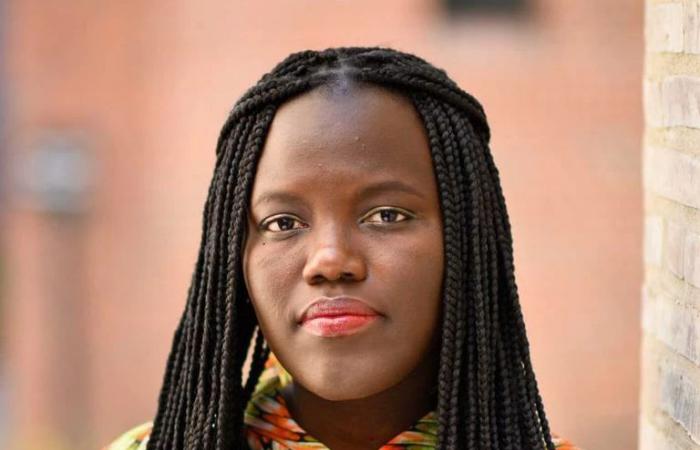Assistant professor of computer science at Princeton University in the United States, Senegalese Adji Bousso Dieng is named among the 10 intellectuals to follow in 2025 by The Africa Report. The announcement was made on Wednesday, by the United States Embassy in Dakar, via a note published on X. Focus on the journey of the first black woman professor in the school of engineering and applied sciences.
There is no success without work and pitfalls. The native of Kaolack took charge of her destiny very early on thanks to the support of her mother. After the death of her father at the age of 4, she joined primary school with many ambitions under her belt. Motivation and a thirst for success to spare, she moves forward without pitfalls. Between the El Hadj Ibrahima Niasse primary school in Kaolack, middle school at the Dialègne school in Kaolack and the Valdiodio Ndiaye high school, the young girl continues her studies. These efforts begin to pay off in the summer before senior year.
“I was selected with two other girls to represent Senegal at the excellence camp organized by the Pathfinder foundation of Dr. Cheick Modibo Diarra,” said Adji Bousso Dieng. Participants in the camp, who subsequently obtained a Good or higher grade in their Baccalaureate, are invited to participate in a competition organized jointly by the Pathfinder Foundation and the Central Bank of West African States. The winner of the competition then receives 15,000 euros per year for 4 years, or 60,000 euros in total, to continue her studies abroad. “I won this competition and decided to go to France,” she says. The same year, in 2006, the bachelor was laureate of the General Competition in Philosophy in 2006.
Between France and the United States, the beginning of the ‘American dream’
The voices of success are impenetrable. After this successful course, Adji Bousso Dieng headed towards the Grandes Écoles de France. “I spent a year at the Lycée Jacques Decour in Paris before continuing my studies at the Lycée Henri IV and my engineering school at Télécom ParisTech,” she explains. At the same time, the engineer-in-training has the opportunity to continue her third year of engineering school in the United States. She seized this chance and flew to Uncle Sam’s country. “That’s how I spent a year at Cornell University in the United States, at the end of which I received my Engineering Diploma from Télécom ParisTech but also a Master’s degree from Cornell University,” she says.
After Cornell, Adji Bousso Dieng worked at the World Bank in Washington DC for a little over a year before starting a doctorate at Columbia University in the United States.
His research work at Columbia focuses on artificial intelligence, more particularly on so-called generative models. These models are the basis of many applications of AI in the study of language and images, but also in science. “I received kudos for my research as a student at Columbia, a nomination as a Rising Star in Machine Learning by the University of Maryland, and the Savage Award for my doctoral dissertation,” she said proudly.
-“I received an offer from Princeton and Google a little before I finished my thesis. I accepted both offers. I spent a year at Google before joining Princeton. I am still at Google as a researcher and run my research laboratory in Princeton,” explained the researcher.
Africa at the heart
Despite these distinctions and successes which crown years of work, the Kaolackoise does not forget her roots. Adji Bousso Dieng is also the president and founder of the non-profit organization ‘The Africa I Know’, or TAIK. “She works to positively change the narrative about Africa and promote education in the fields of science, technology, engineering, mathematics, and artificial intelligence,” informs the researcher. TAIK wants to inspire, inform, and educate African youth so that they can take charge of the continent’s development.
The aspirations of the TAIK organization are in line with those of its research laboratory, Vertaix. He works at the intersection of artificial intelligence (AI) and sciences like chemistry, materials science, physics, biology, etc. The lab’s mission is to accelerate scientific discovery through AI. The methods developed can find applications in areas such as health, climate, environment, energy, and water purification. “The fact that these areas of application are very important for the development of Africa motivates the theme of my research,” she says. A researcher at the crossroads of openness and rootedness!
Let me EAT






